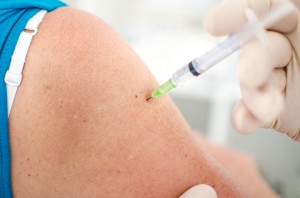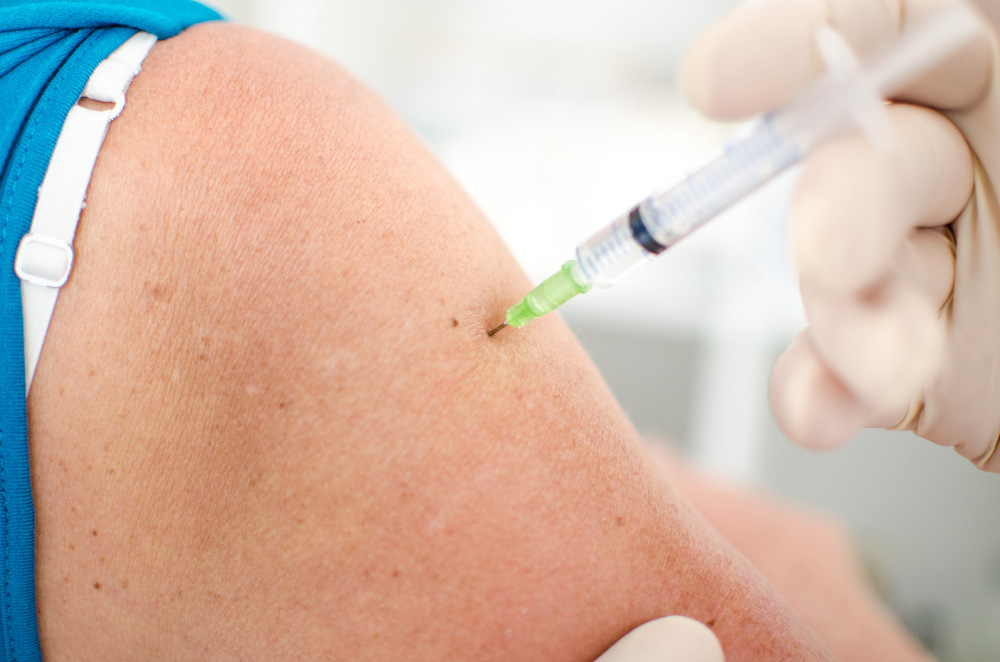 Recent research developed by scientists at the Washington University School of Medicine in St. Louis, titled “Checkpoint blockade cancer immunotherapy targets tumour-specific mutant antigens” and published in the prestigious Nature journal, points to the possibility of using personalized cancer vaccines to treat cancer patients.
Recent research developed by scientists at the Washington University School of Medicine in St. Louis, titled “Checkpoint blockade cancer immunotherapy targets tumour-specific mutant antigens” and published in the prestigious Nature journal, points to the possibility of using personalized cancer vaccines to treat cancer patients.
Just like a regular vaccine, cancer vaccines boost the patient’s immune system to recognize cancer cells as foreign entities, thus attacking them when they transform, stopping cancer progression at an early stage.
In fact, Gerald Linette, MD, PhD, and Beatriz Carreno, PhD at Siteman Cancer Center are already leading a clinical trial assessing personalized cancer vaccines in patients with metastatic melanoma.
In this recent study, the research team tested experimental vaccines using computer simulations, in vitro cell cultures and in vivo animal models. They managed to identify tumor-specific mutant proteins as a major class of T-cell rejection antigens, after anti-PD-1 or anti-CTLA-4 checkpoint inhibitor therapy in animals that had developing tumors. They were able to demonstrate that synthetic long-peptide vaccines efficiently modulated the immune system to kill different types of tumors, by incorporating the mutant epitopes and inducing tumor rejection.
“This is proof that personalized cancer vaccines can be very powerful and need to be applied to human cancers now,” senior author Robert Schreiber, PhD, the Alumni Professor of Pathology and Immunology and director of the university’s Center for Human Immunology and Immunotherapy Programs, said in a news release.
To create a cancer vaccine, researches take samples of DNA from a patient’s tumor and normal tissue, and then proceed to sequence that DNA to pinpoint which genes are mutated and will give rise to tumor-specific proteins. These proteins are then analyzed to understand which ones will be recognized and destroyed by a patient’s own T cells and are incorporated into a vaccine that is injected into the patient.
“We thought it would be safer to find ways to identify the mutated tumor proteins that are the specific targets of the reactivated T cells that attack the tumors,” Dr. Schreiber added. “We believe we can incorporate those proteins into vaccines that only unleash the T cells on the tumors, and so far, our tests have been very successful.”


